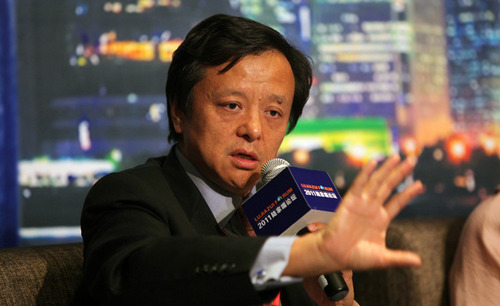
Li Xiaojia, Head of Hong Kong Stock Exchange, writes
Today, I would like to talk about investor protection and ownership structure. The opinions offered below are mine alone and do not represent those of anyone else.
Q1: Why would you rake up the discussion of investor protection and ownership structure after this topic has gone down?
Innovative company will account for a considerable proportion in China in the next wave of new economy. To HK, losing one or two listed company is no big deal, but losing a generation of innovative companies from China’s new economy without a proper debate is unacceptable.
Q2: Why would investors consider to give a try to innovative companies?
The key to innovative company’s success is the founder’s unique dream and farsight. For instance, Apple, Facebook and Google’s successes derived from their creativity as well as dream—which—became the paramount assets. Those founders concern much about their companies development in a long run, which, in return, attracts numerous investors.
Another significant shared characteristic of innovative companies is that before establishing the company, many of the founders are short of financial resources and they have to raise funds by all possible means to fulfil their dreams. This will inevitably impair founder’s stock rights.
Q4: Is there any possible gateway between maintaining the status quo and dual-class shares?
Maintaining the status quo refers to that no privileges on controlling the company shall be given to the founder. This implies that HK turns down those innovative companies that are leading the economy, which may lead to the loss of core competitiveness of HK’s market in the future.
Another option is to permit listed company to issue dual class or multi-class shares with different levels voting rights, i.e. the founder’s voting right is more than that of the public shareholders. This system has been adopted for years in the overseas market including U.S. and Europe, among which there are many big IT companies such as Facebook and Google.
A major concern over these two options lies in whether the founder should be given the right to nominate the majority of the board directors.
On one hand, some are in favor of entitling the founder or his team to nominate a minority of board directors and to have certain influence on appointing senior executives. To achieve this requires the supervisor to lay out a deliberate arrangement on its system which not only secures the stability of the founder and his team in steering the big boat but also not substantially impacts the principle of holding the same stock sharing the same right.
On the other hand, some suggest that the founder is allowed to nominate a majority of board directors while the general meeting of stockholders can veto the nomination. In addition, every shareholder shares the same right. To achieve this requires the nomination system error correcting capability and its term of validity.
Q6: Is ownership structure a feasible way of listing in HK?
Traditionally, ownership structure is utterly different from corporation system. The former one is one man one vote; partners involved are conditioned by contracts. The latter one is one share one vote; shareholders involved are to conduct their rights and responsibilities by “standard covenants” such as articles of incorporation and corporation law etc. and shareholders are free in and out on the market through selling or buying the stock. So to speak, ownership is ruled by man while corporation system by law. Listed companies can only adopt corporate governance based on stock right. Hereof, supervisor is accountable for the right and responsibility among shareholders, board of directors and management team. Ownership therefore has nothing to do with it.
Q7: What limitations should be set for those innovative companies that choose to list in HK, given that the market is willing to make some changes?
If the market agrees to give privileges to the founder and his shareholders of some innovative companies, then these privileges can only be applied in limited circumstance. For instance, this company must be an innovative one representing the new economy; only the founder or the founding team is allowed to obtain such privileges and this exception shall not be transferred or inherited by all means etc. In addition, other measurements such as minimum market value can be introduced to make sure that these companies be monitored by sophisticated investors not to abuse their power.
If ownership structure meets all the conditions listed above, eg. the founder or the team is from innovative company with a certain amount of stocks, then it can be taken into account, otherwise it cannot.